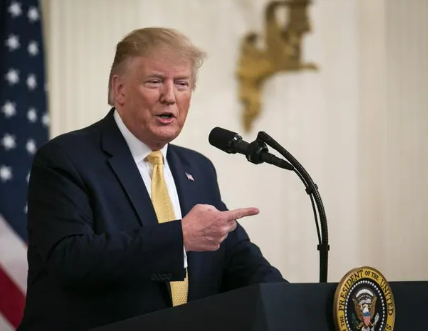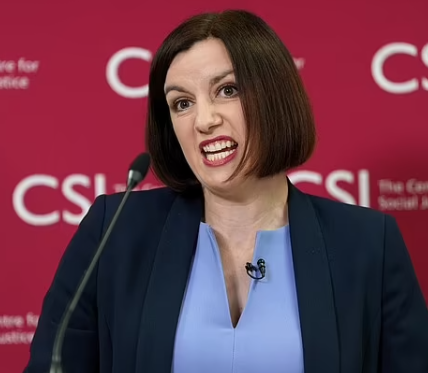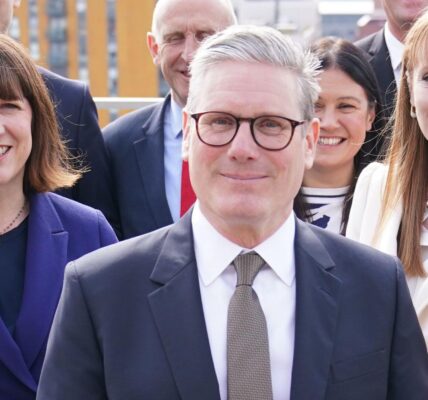Rachel Reeves ‘could need £40BILLION of tax hikes and spending cuts’ in Budget bombshell after public sector pay splurge – as businesses warn that raiding national insurance will be Labour’s ‘poll tax’ moment_Nhy
Rachel Reeves may need an eye-watering £40billion of tax hikes and spending cuts in the Budget, it was revealed today.
The Chancellor is said to be looking for the enormous sum to balance the books and bolster services after Labour‘s splurge on public sector pay.
The figure is significantly higher than the £22billion financial ‘black hole’ that Ms Reeves had initially complained the Tories left her.
It will fuel mounting alarm about the scale of the raids she is planning to make on October 30 following a series of heavy hints at a massive assault on national insurance contributions (NICs) by employers.
The Institute of Directors warned today that the move would be Labour’s ‘poll tax’ moment, in reference to the carnage that engulfed Margaret Thatcher‘s government.
Economists have made clear that increasing the main rate is effectively extra tax on Brits as firms will have to pass the costs on.
There is also the potential for NICs to be imposed on pension contributions that employers make on behalf of their staff – despite alarm at the impact on retirement funds.
Inheritance tax and capital gains tax also appear to be in Ms Reeves’ crosshairs.

Rachel Reeves may need an eye-watering £40billion of tax hikes and spending cuts in the Budget, it has been revealed today

The IFS has cautioned that Ms Reeves will need to take drastic action to balance the books

NICs is charged at different rates for employers, employees and the self-employed

The head of the IFS, Paul Johnson, said the Labour manifesto was ‘clear’ on NICs

The £40billion figure being briefed by the Treasury is far higher than the estimates from think-tanks in recent weeks.
Institute for Fiscal Studies (IFS) chief Paul Johnson said that £40billion worth of hikes alone would be ‘extraordinary’ and that eventually the Government would need to target income tax if it went down this route.
‘If we get tax rises on that scale, that really will be extraordinary – I mean, unprecedented,’ he told BBC Radio 4’s Today programme.
‘Forty billion pounds is a big number, you can get there relatively easily actually in terms of the scale of additional spending that will be required down the line.
‘Some of that can be covered by slight changes in the fiscal rules, some of that will be covered by some of the tax rises the party is already intending.’
But he added that a ‘significant’ amount would still be left over even after these measures, saying: ‘If they’re looking for £20 or £30billion of tax rises, in the end, they will have no choice but to do something with income tax.’
Anna Leach, chief economist at the Institute of Directors, said: ‘A hike in NI represents a straightforward increase in business costs.
‘It is essentially the equivalent of a poll tax on companies and takes no account of whether a business is profitable or not.
‘At a time when business confidence is low, hiring plans have already been hit and vacancies are falling, this will hit employment prospects and earnings.’
New figures show that inflation dropped below the Bank of England target rate last month for the first time since April 2021.
The IFS insisted earlier in the week that hiking NICs for employers would be a ‘straightforward breach’ of Keir Starmer’s election manifesto.
But Sir Keir told the BBC: ‘We were very clear in the manifesto that we wouldn’t be increasing tax on working people and we expressly said that that was income tax, that was NICs, etc.’
He added: ‘It wasn’t just the manifesto, we said it repeatedly in the campaign and we intend to keep the promises that we made in our manifesto.
‘So I’m not going to reveal to you the details of the Budget. You know that that’s not possible at this stage.
‘What I will say is where we made promises in our manifesto, we will be keeping those promises.’
The comments echo Ms Reeves’ position in an interview at the Government’s global investment summit yesterday.
During the election, Labour vowed not to raise income tax, VAT or national insurance – but the party is now claiming this did not include the employer part of national insurance.
Bosses pay NI at a rate of 13.8 per cent on all employees’ earnings above £175 per week.
Increasing it by just 1p could raise about £8billion a year.
Starting to impose the levy on pension contributions made by employers could bring in even more – at £17billion a year.
In a growing backlash, companies and business groups said any such rise would come back to bite working people.
It is likely be passed on to employees in the form of smaller pay increases.
The last time that employer NICs were put up, in 2021, the independent Office for Budget Responsibility predicted that would happen.
It calculated that 80 per cent of the hike would be shouldered by workers in the form of lower wages and 20 per cent passed on to consumers via higher prices.

An Office for Budget Responsibility chart showing how national insurance revenues are already set to climb




